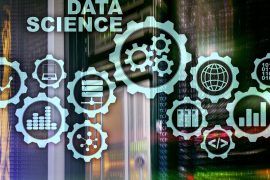AI engineers are expected to be trained in technical skills such as programming, software development, and data analysis while soft skills are sometimes overlooked. Recruiters are beginning to ask that your soft skills are just as polished as technical skills, so it’s important that you learn these necessary tactics before applying for a tech role.
Below are 5 soft skills you need to land the role you’re after.
Communication
To advance your career, it’s crucial that your communication skills are up to par. Many professional scenarios require excellent communication, such as speaking with superiors or coworkers. When interviewing, negotiating a salary, or explaining complex technical concepts you are expected to communicate accurately and clearly. Effective communication sets you apart from other candidates for your desired position. Once you land the job, communication skills could mean the difference between a six-figure salary or entry level pay. Check out these TED Talks to learn specific ways to sharpen your communication skills.
Emotional Intelligence
Commonly known as EQ (emotional IQ), emotional intelligence characterizes a person’s awareness, control, expression of their emotions and understanding of others’ emotions. When you think of someone who is both empathetic and works well with others, you are thinking of someone with a high EQ. To effectively work with a team it’s crucial that every member has full control over their emotions. Especially in remote environments where human interaction is limited, companies are looking for employees that can collaborate well with others. To improve your EQ try practicing healthy coping mechanisms. Redirecting your negative emotions through activities like meditation, hobbies, or exercise is a great way to keep yourself calm and collected in the workplace.
Critical Thinking
Analytical thinking is an incredibly valuable skill as the typical work environment is changing to cater to both humans and machines. People with critical thinking skills are especially valuable as they can come up with new pitches, solve complicated problems, or compare the outcomes of two possible solutions through logic and reasoning. A great way to sharpen this skill is through mock-interview questions. If you are able to explain your answers to these types of questions, you will be prepared to think on your feet after landing your new role.
Adaptability
As an AI engineer you know computers can process data more efficiently than humans, yet the major decisions of almost every business are still made by the people who work there, such as those influencing work culture and daily working life. Even with the rise of AI in businesses, decision making and adaptability remains essential.
Working from home is another great example of what it means to be flexible in a work environment. Post-pandemic, many companies are making a permanent shift to remote office spaces rather than spending revenue on an office space. The ability to not only embrace this sort of change but also thrive in it depends on mindset and openness to new environments.
Work Ethic
Many AI engineers are natural hard workers. A career in engineering constitutes long hours of studying and applying algorithms to complex problems. However, being a hard worker doesn’t mean that you also have a good work ethic. A good work ethic requires you to be disciplined, motivated, and consistent. A way to improve your work ethic is to set aside defined durations of time to work on a specific project. Remove any sort of distractions and try to hone your focus on the task at hand. A great tool to keep track of your workload is Notion.
Bottom Line
There are many soft skills that will benefit your career as an AI engineer. Hopefully this article has provided you with a good starting point as you begin to practice these skills before you begin your career in AI.
Work for a company that will help you succeed in the world of AI and apply to be a Squadery engineer today!





